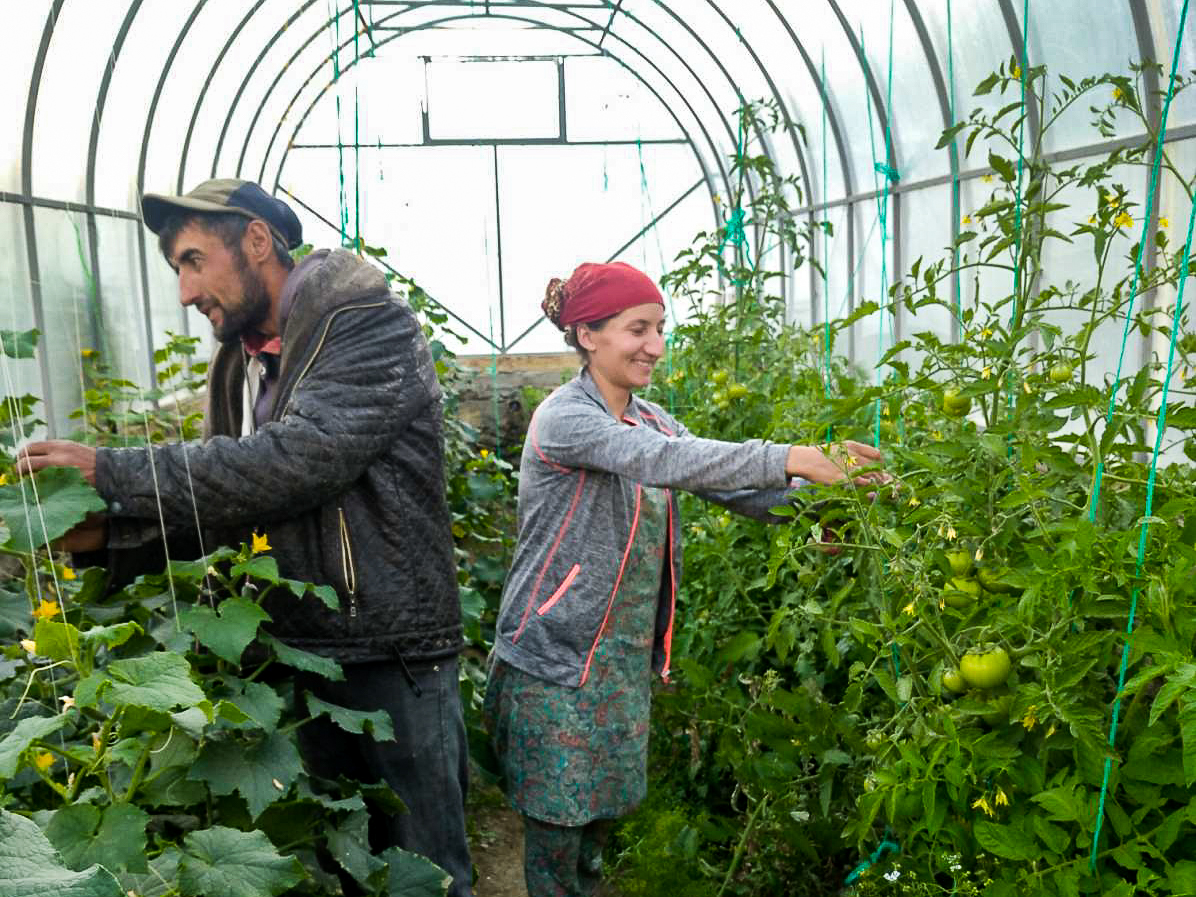Located in eastern Tajikistan on the border with Afghanistan, Gorno-Badakhshan Autonomous Oblast (GBAO) sits at an altitude of 2,300 to 4,000m above sea level. Its dry, continental climate and annual rainfall of 250 to 300mm means that the growing season for fresh fruits and vegetables is limited to just four to six months. This brings considerable health and food security challenges for communities living in this mountainous region.
Since 2018, the Aga Khan Foundation has been running the Mountain Food and Nutrition Security Project, as part of its Central Asia Poverty (CAP) programme. The project tackles poverty and combats food insecurity through various approaches, including land development, production support and technical support for revolving funds for agricultural inputs. It is also helping fund the construction of greenhouses for the lowest income households with children under five years old and pregnant mothers.
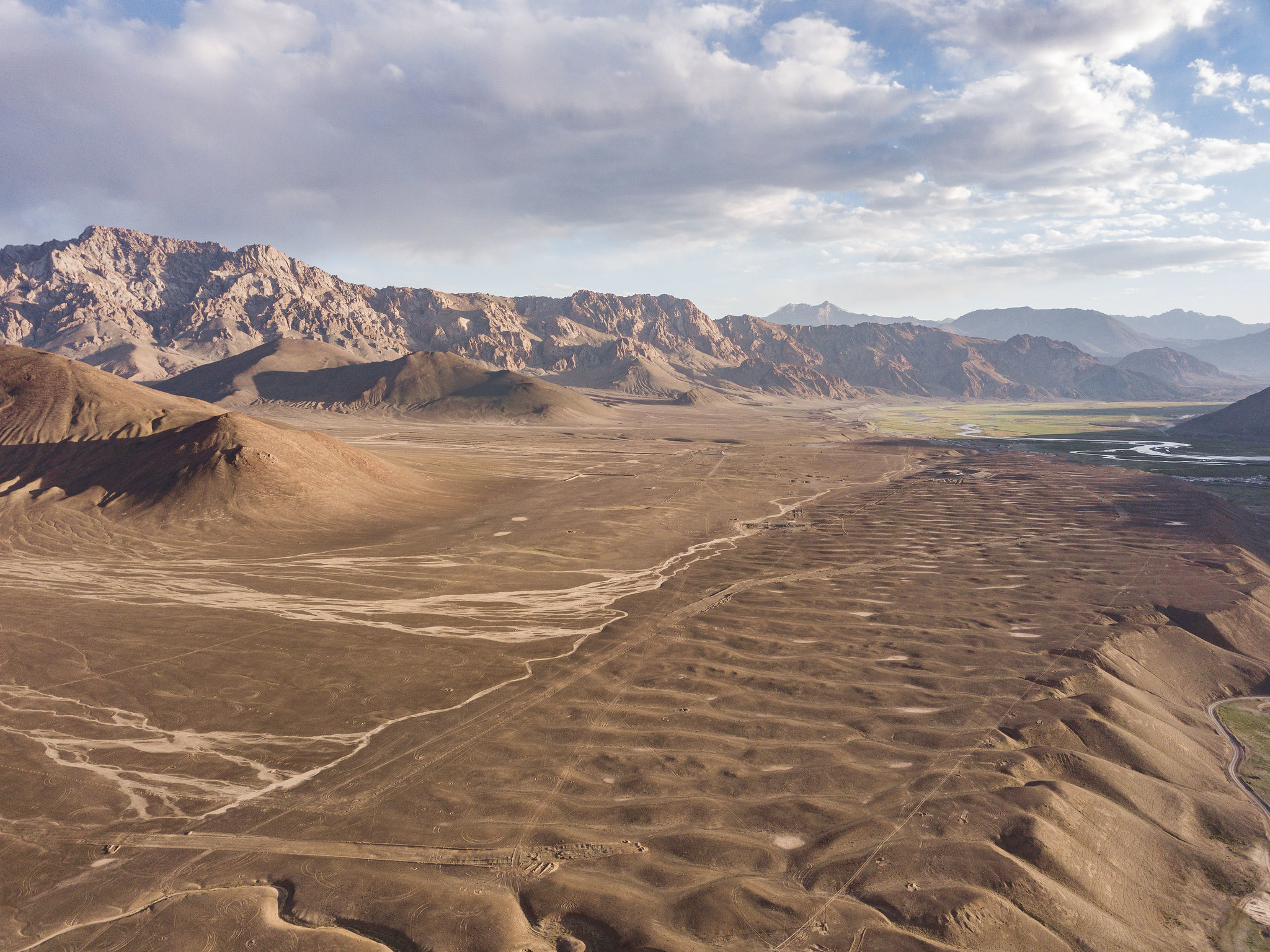
In the extreme climate conditions of GBAO, these greenhouses are having a huge impact on the lives of families, enabling access to fresh and nutritious vegetables, as well as creating opportunities to can and sell their produce for additional income.
From 2018 to 2021, more than 80 greenhouses were built in GBAO and another 71 will be built by the end of 2022. The polycarbonate greenhouses are between 25m² and 30m² and designed to serve a household for up to ten years. Most families are growing cucumbers, tomatoes and greens – fresh produce they would have otherwise not had access to.
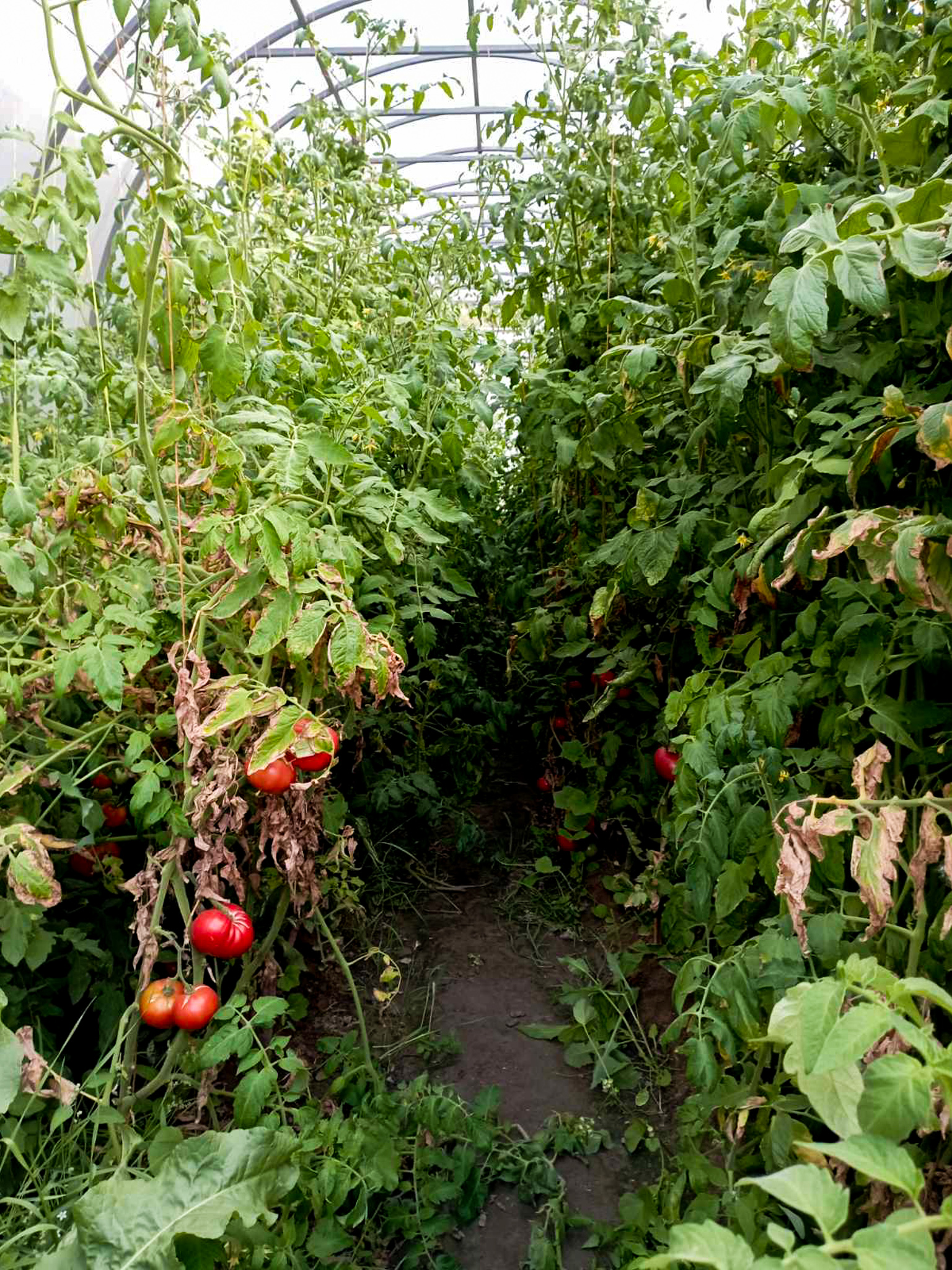
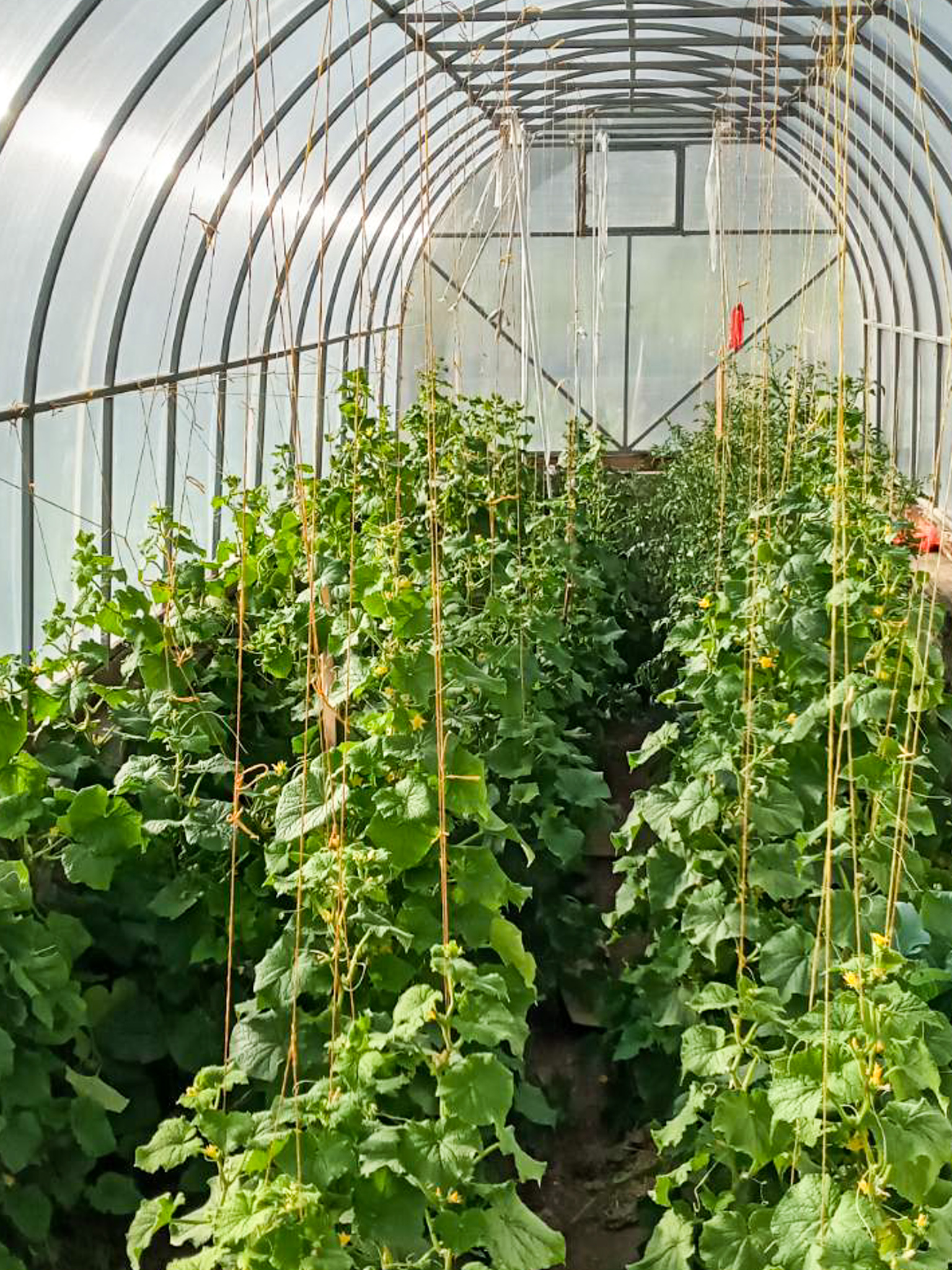
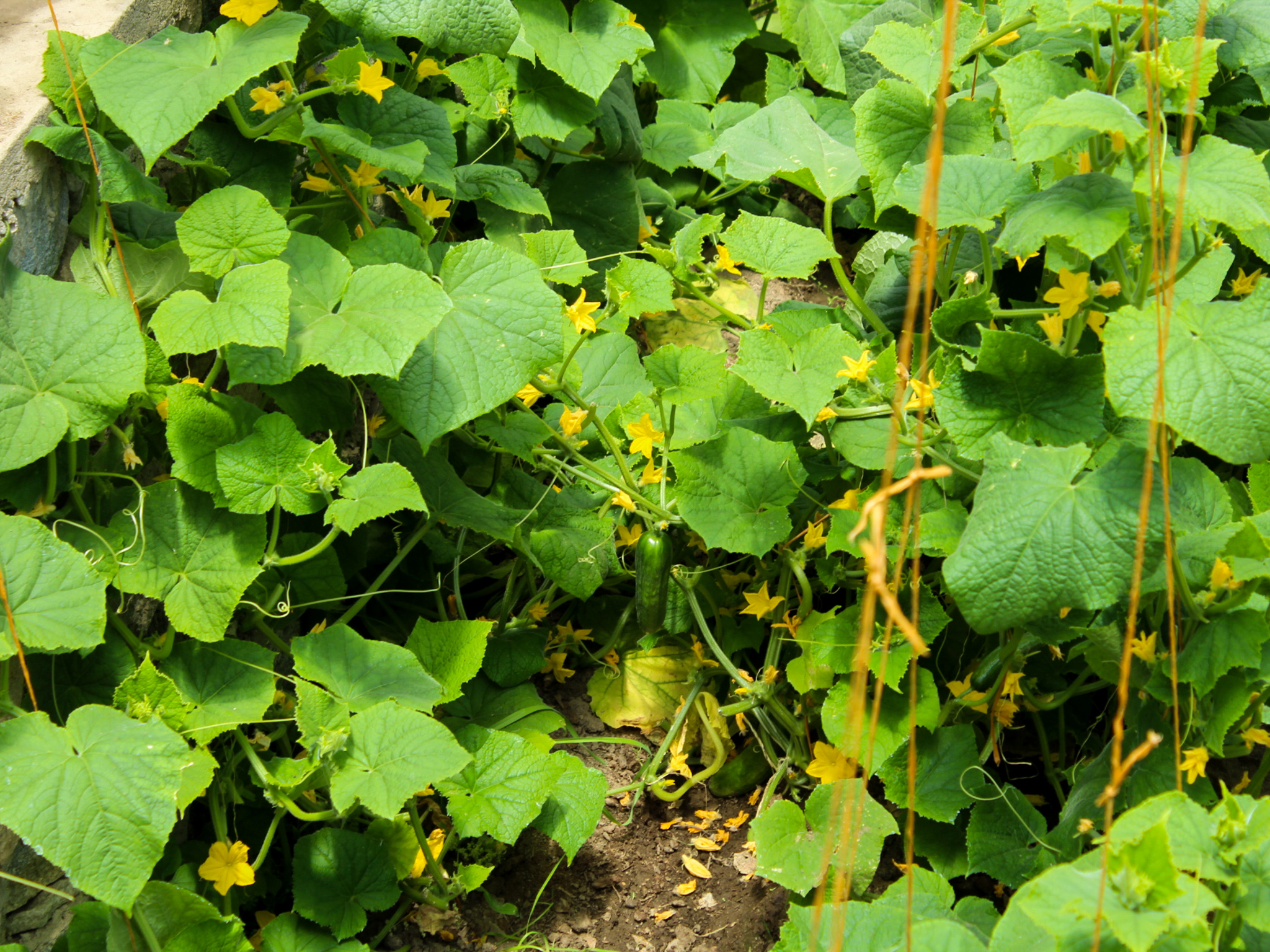
Alinazarov Maruf and Muslima are young parents from the extremely remote Sejd sub-district of Roshtqala district. Maruf works a seasonal job at a local school, yet his wage is not enough to cover the expenses of his growing young family. In early 2021, the family had the opportunity to build a greenhouse in their garden.
“We are very proud that we were the first family in our village to have a greenhouse. We knew that our life would change in all dimensions”, says Muslima. “The greenhouse is like a blessing; we gather the harvest every day and in the morning the crop is fruitful again.”
“The greenhouse is like a blessing; we gather the harvest every day and in the morning the crop is fruitful again.”
Muslima – greenhouse owner in Roshtqala district
By July, Maruf and Muslima’s crop was ready to harvest; in fifteen days, they collected 32kg of cucumbers from their greenhouse, out of which they sold 22kg, and kept 10kg to eat at home. With the income Maruf and Muslima bought other products and goods for their household needs.
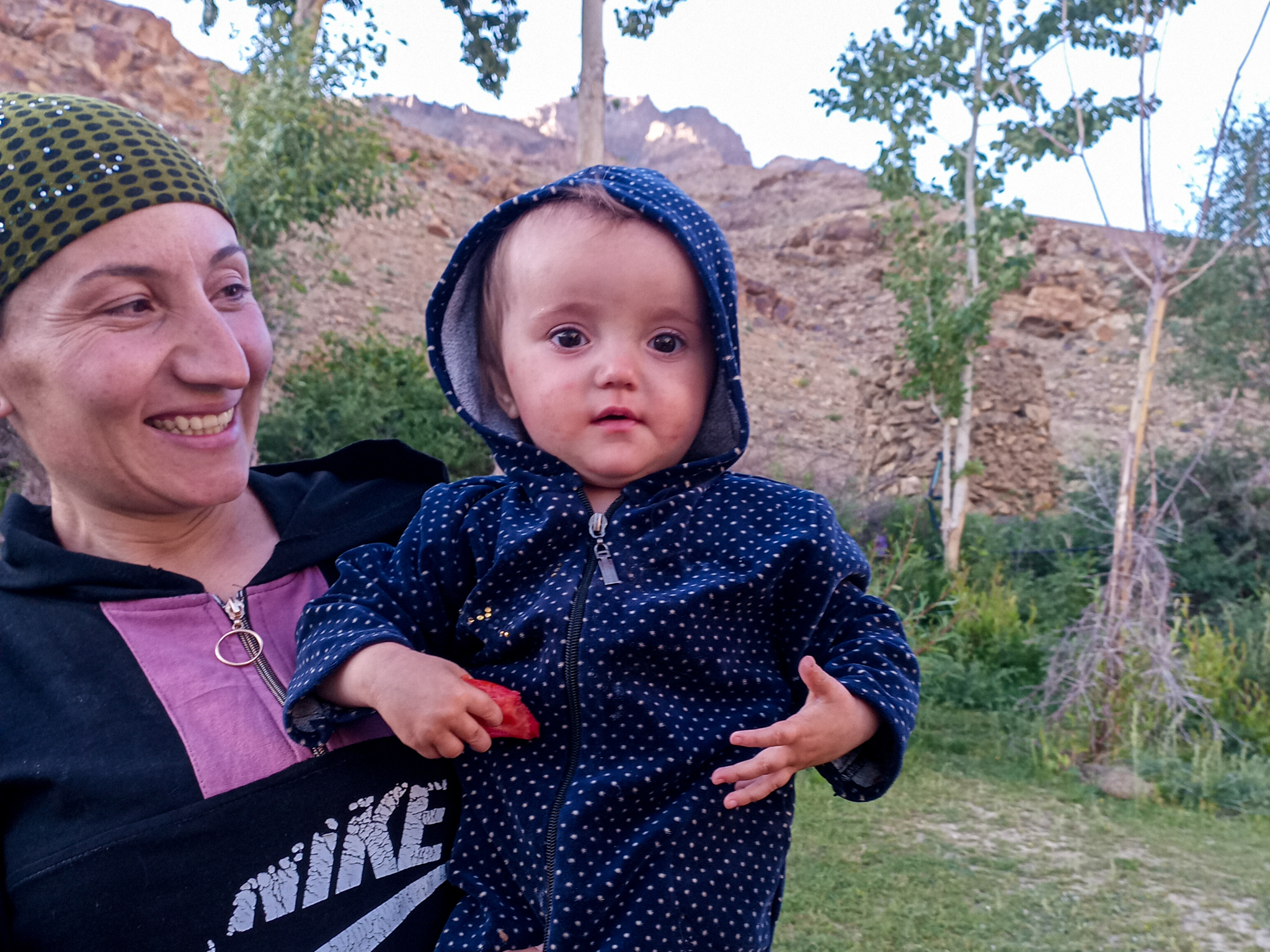
On the 14th day of harvest, they collected their first tomato. “We’ve never had the opportunity to buy or eat fresh vegetables due to the high market prices,” says Muslima, “Now that we have a greenhouse, we’ll not only have access to fresh vegetables, but also be able to save up enough money to buy more tools so that we can become self-sufficient.”
This year, AKF began piloting the Nutrition and Agriculture Food Security project to understand how greenhouses like these in GBAO contribute to nutrition so that we can enhance their impact on families like this one. Maruf wants to see more greenhouses built in Roshtqala and its neighbouring districts, so that families like his cannot only benefit from nutritious, healthy food, but also improve their quality of life and help lift themselves out of poverty.
This article was written by Tojigul Raimshoeva, Monitoring and Evaluation Assistant for the CAP programme in Tajikistan.

